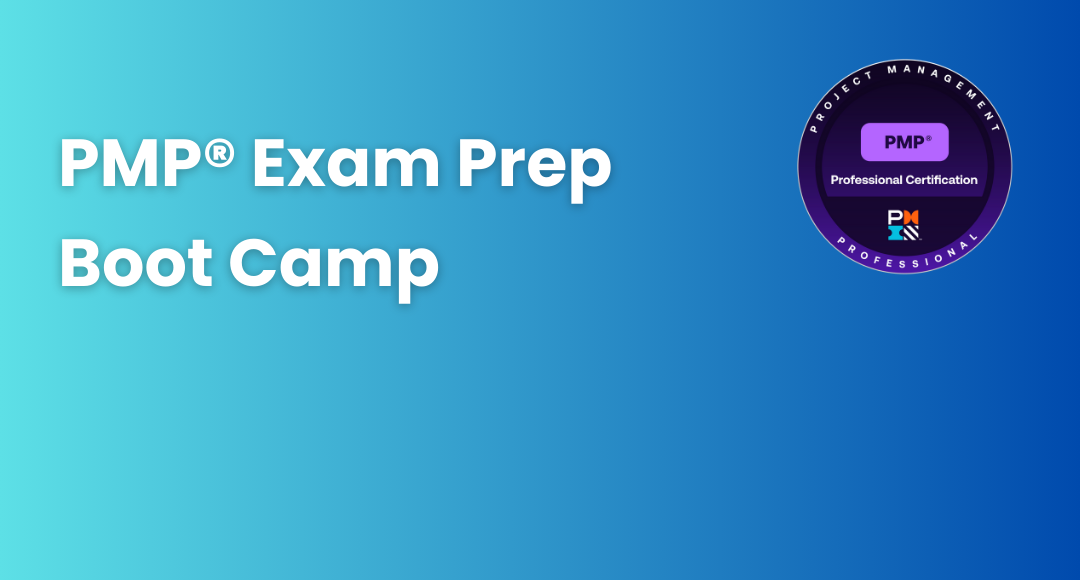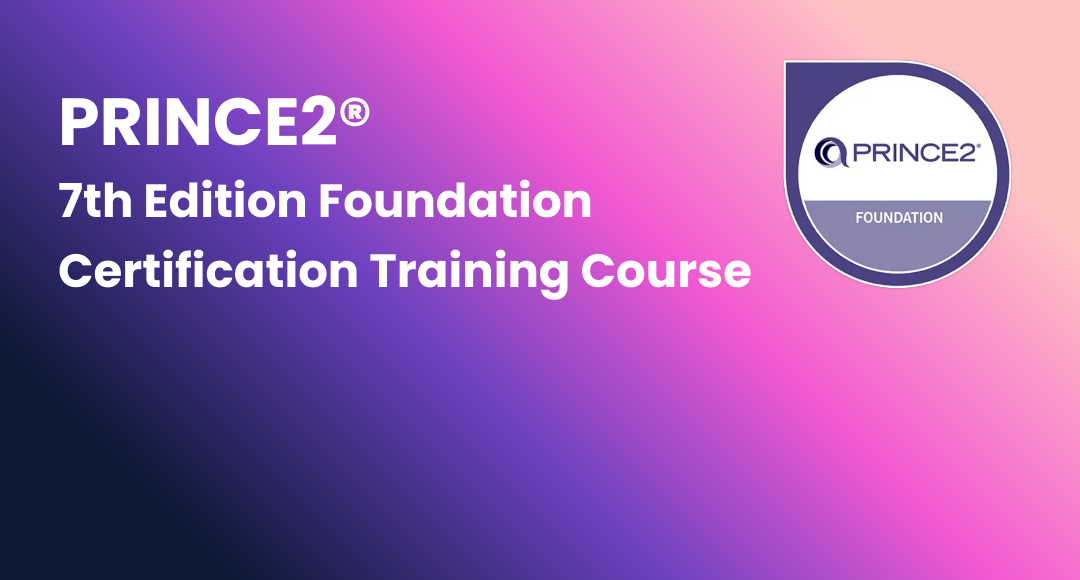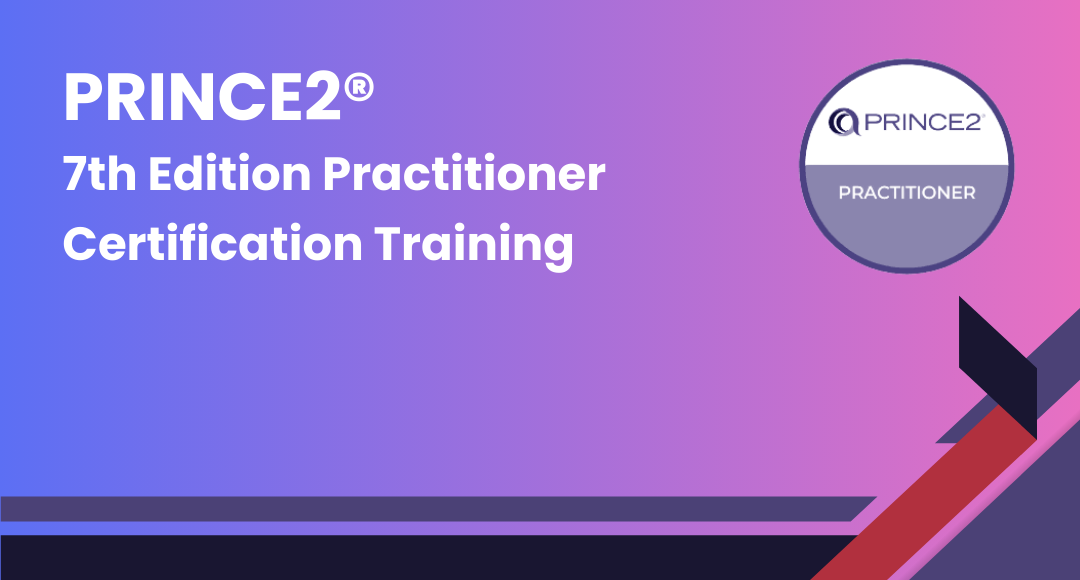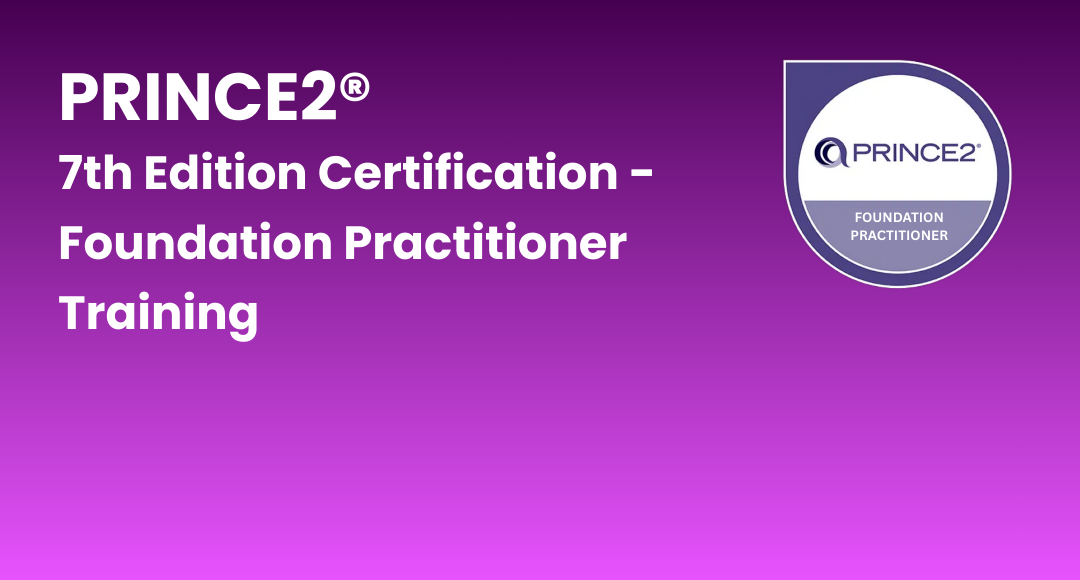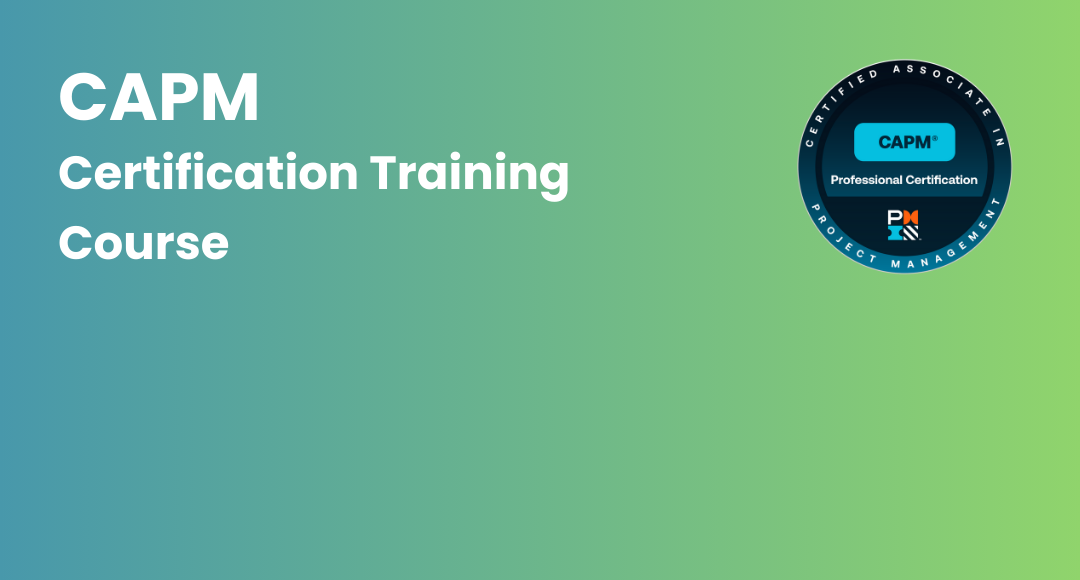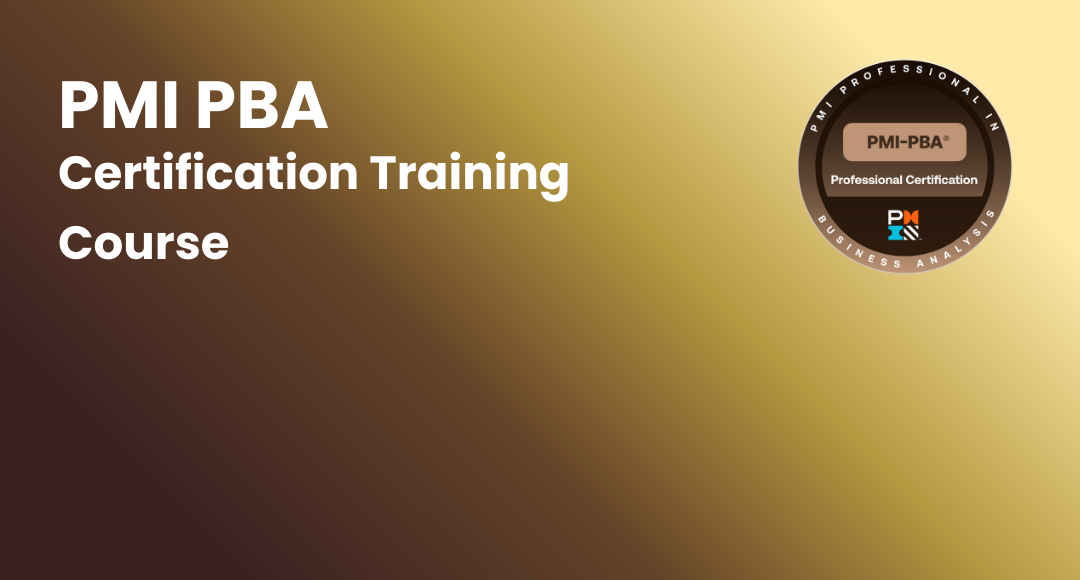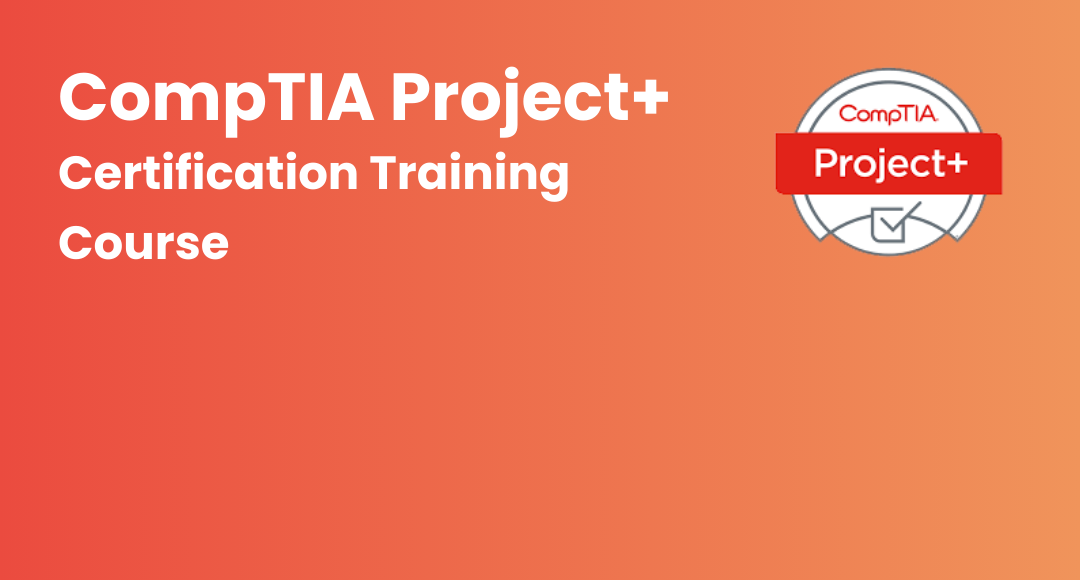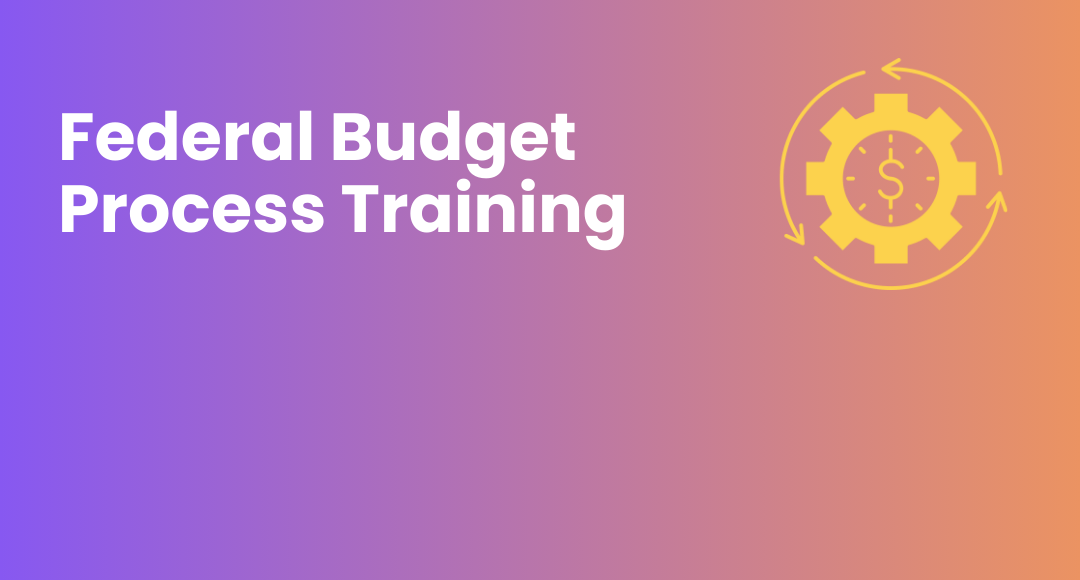Project Timeline: How to Build One, Definitions, and Examples
-
 By Nchumbeni Yanthan
By Nchumbeni Yanthan - Published on May 17 2023

Table of Contents
- A Brief Intro to the Project Timeline
- What is a Project Timeline?
- Project Timeline Software
- Online Project Timeline Software Benefits
- Project Timeline Example
- Brief Steps to Building a Project Plan Timeline
- Best Practices for Creating a Project Management Timeline
- Conclusion
- Frequently Asked Questions
A Brief Intro to the Project Timeline
To organize and monitor progress, a project timeline is a visual depiction of project tasks, their durations, dependencies, and project milestones. Your project's specific steps and length will depend on its nature and scale, but you can use this broad outline as a starting point.
Setting realistic deadlines and updating all project participants on any changes are crucial, though. Throughout the course of the project, project management software can be useful in managing deadlines and resources.
This article will teach you how to set goals for your project, adhere to deadlines, and monitor project progress using your project timetable.
What is a Project Timeline?
A project timeline is a graphic representation of the order in which project tasks, deadlines, and milestones occurred.
It offers a comprehensive perspective of the project timeline, enabling team members and project managers to monitor progress and spot potential problems.
Task titles, start and end dates, duration, dependencies between tasks, and any milestones or deliverables are often included in a timeline.
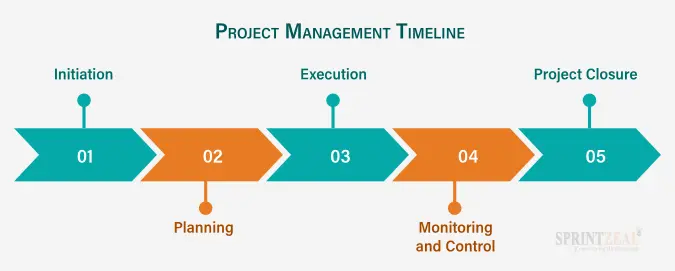
Timelines for projects can be represented in a variety of ways, from straightforward Gantt charts to more intricate software solutions that enable real-time tracking and communication.
Stakeholders may keep track of the project's development and promptly see any potential problems or delays that could harm the project's overall success by using a project timetable. Because of this, project managers can take proactive measures to address these issues and keep the project moving forward.
Project Timeline Software
Project managers and team members can develop, manage, and track project timelines with the aid of project timeline software. These software solutions give the project plan a visual representation, ensuring that everyone involved in the project is on the same page. Gantt charts, a common format for project timeline displays, can be made and shared using project timeline software. Project timeline software may provide more capabilities besides Gantt charts, such as
Resource Administration: Tools for managing team members, equipment, and materials, as well as other project resources.
Collaboration: Task assignments, communications, and file sharing are features for communicating with project team members and stakeholders. Tools for time tracking, including timesheet creation, are available.
Time tracking: Tools for tracking time spent on project tasks and creating timesheets.
Reporting: Tools for compiling statistics on how well resources are being used for a project, among other important metrics.
Integration: Integration with other project management tools, such as task management, issue tracking, and project portfolio management software.
Using Bootstrap templates for your admin dashboard can help in creating a seamless interface for managing these integrations, offering a responsive and user-friendly design that works across all devices.
Software for creating project timelines is widely used, and some examples are Microsoft Project, Asana, Trello, Smartsheet, and Wrike. These technologies can aid in the efficient planning, carrying out, and monitoring of projects by project managers, ensuring that projects are finished on schedule, within budget, and to the satisfaction of stakeholders.
Online Project Timeline Software Benefits
Here are some benefits of using online project timeline software:
Improved collaboration: Collaboration is improved since team members can communicate information in actual time, including updates, files, and feedback, thanks to online project timeline software. This ensures that everyone is in agreement and helps foster better communication.
Greater visibility: Online project timeline software gives consumers a greater perspective on the project schedule, making it less difficult to monitor progress, identify potential problems, and make the necessary modifications. Thus, it makes it easier to continue with the project's course and keep all relevant parties informed on its advancement.
Scalability: Online project timeline tools are sufficiently adaptable to be tailored to the needs of projects of any complexity or size. It is a useful tool for managing portfolios since it can be employed to manage multiple projects simultaneously.
Data analysis: Online project timeline software provides beneficial details that can be used to assess the achievement of a project, spot trends, and come to data-driven judgments. Future project planning and execution could profit from this.
In the end, online project timeline software may help project managers properly plan, conduct, and evaluate their projects, ensuring that they finish on time, within budgetary constraints, and to the delight of stakeholders.
Project Timeline Example
Here is one of the simple project timeline examples using a Gantt chart format:
Task 1: Project Initiation
Duration: 2 weeks
Start Date: May 1, 2023
End Date: May 14, 2023
Task 2: Project Planning
Duration: 4 weeks
Start Date: May 15, 2023
End Date: June 11, 2023
Task 3: Resource Allocation
Duration: 1 week
Start Date: June 12, 2023
End Date: June 18, 2023
Task 4: Design and Development
Duration: 10 weeks
Start Date: June 19, 2023
End Date: August 27, 2023
Task 5: Testing and Quality Assurance
Duration: 2 weeks
Start Date: August 28, 2023
End Date: September 10, 2023
Task 6: Deployment
Duration: 1 week
Start Date: September 11, 2023
End Date: September 17, 2023
Task 7: Project Closure
Duration: 1 week
Start Date: September 18, 2023
End Date: September 24, 2023
This timeline shows the sequence of events, their lengths, beginning and ending dates, and more. Tasks 2 through 5 make up the project's critical path, which is the longest series of jobs that must be finished by the project deadline. This period of time may be used to monitor the project's progress and ensure that it continues to go forward on schedule.
Brief Steps to Building a Project Plan Timeline
Building a project timeline requires careful planning, attention to detail, and effective communication with team members and stakeholders. By following these steps, you can create a timeline that accurately reflects the project plan and helps ensure project success.
Define the project's scope, goals, and objectives: This process involves identifying the project's objectives, targets, and compatibility with the mission of your company.
Plan your project: Develop a comprehensive project schedule that includes a list of tasks, dates for project completion, and milestones. Make sure to take into consideration any dependencies, risks, and constraints that could impede the project's progress. Take advantage of a Work Breakdown Structure (WBS) to break down the project into more manageable parts.
Identify and allocate resources: This phase involves figuring out the resources needed to finish.
Create processes to facilitate interaction and reporting: Establish a system to interact with project team members, stakeholders, and sponsors. Create task dependencies and define the links between tasks. Employee digital signage displays can be used to showcase task progress and upcoming deadlines in real time. Establish regular meetings and reporting techniques to keep everyone updated on the current state of the project.
Follow up on the project plan: Start executing the project plan by achieving the tasks and milestones that have been defined. Evaluate progress and implement suitable modifications to the plan.
Control and monitor project progress: This phase involves monitoring the progress of the work, recognizing any issues, and implementing remedial action if necessary to maintain the project on timetable. Use the Gantt chart or other project management software to create a timeline. According to feedback and changes, adjust the period of time as necessary.
Finish the project: In order to make sure the project keeps going on track and that tasks are done on time and within budget, the timetable should be continuously monitored and updated. Close down the project by documenting lessons learned, conducting a final review, and transferring any necessary deliverables to the appropriate parties.
Given the project's complexity, the resources at hand, and other factors, the duration of every phase will vary.
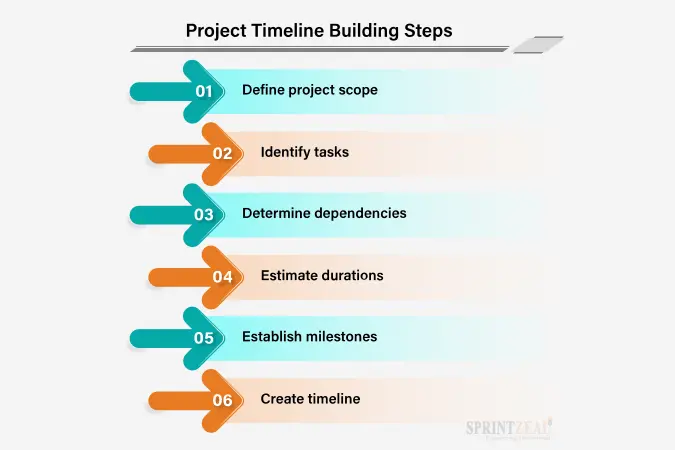
Best Practices for Creating a Project Management Timeline
Follow these project timeline best practices to create an efficient project management timeline:
- define the project's scope;
- divide responsibilities,
- set realistic time constraints,
- identify job dependencies,
- assign resources,
- regularly monitor and adjust the time frame,
- communicate clearly with all stakeholders.
Through doing this, you can make certain that your project stays on obviously, that tasks are completed promptly and reasonably, and that everyone in the group is informed of the project's status and timeline.
Conclusion
The project's schedule is usually developed by project managers working with the project team. Project schedules will continue to be a vital tool for efficient project management in 2023. Besides providing a clear picture of the way the project is going, they additionally assist in spotting possible problems, optimizing resource allocation, and promoting team member engagement and communication. Planning, executing, and monitoring projects can all be done in a systematic way using project management.
Getting a PMP certification can be helpful for anyone looking for better project outcomes and to advance their career prospects. Sprintzeal’s PMP Certification Training Course for the project management field is offered by PMI, the Project Management Institute.
Find the certification that will help your career by exploring the additional career-making courses Sprintzeal offers. Chat with our course specialist to obtain complete information about courses or for queries, and our support team will get back to you.
Frequently Asked Questions
How do you write a project timeline for a project?
To build an extensive project timeline, identify tasks, calculate time, order tasks, assign resources, establish due dates, and track progress.
What four elements should be in a project timeline?
A project schedule ought to contain tasks, time projections, dependencies, and goals.
What should be on a project timeline?
Project tasks, their lengths, dependencies, resources, achievements, deadlines, and performance-tracking tools should all be included in a project schedule.
Subscribe to our Newsletters
Popular Programs
CAPM® Certified Associate Project Management
Live Virtual Training
- 4.5 (962 + Ratings)
- 64k + Learners
Trending Posts
Netflix's Binge-Worthy Project Management
Last updated on Mar 13 2025
Project Deliverables in Project Management
Last updated on Aug 26 2022
Process Capability Analysis Explained
Last updated on Sep 22 2022
Gantt Chart Tools - Best of 2026
Last updated on Sep 22 2022
Top Leadership Skills: Mastering the Art of Effective Leadership
Last updated on Jan 24 2024
Project Management Phases Explained
Last updated on Aug 1 2022
Categories
- Other 68
- Agile Management 45
- Cloud Computing 51
- Project Management 171
- Big Data 65
- Business Management 85
- Digital Marketing 76
- IT Service Management 29
- Programming Language 55
- AI and Machine Learning 71
- IT Security 110
- Quality Management 78
- IT Hardware and Networking 25
- Microsoft Program 4
- Workplace Skill Building 12
- Risk Management 9
- Information Security 8
- Leadership and Management 7
- Corporate Training and Development 1
Trending Now
Issue Log in Project Management - Uses and Importance
ArticleSupply Chain Response And The Factors Involved In It
ArticleBest Agile tools for Project Managers in 2026
ArticlePMI-PMP® Exam Changes Explained in 5 Minutes
ebookProject Initiation Phase - Importance and Roles Involved
ArticleDelphi Technique and Its Role in Project Management
ArticlePMBOK Guide and Project Management Certification Updates 2024
ArticleHow to Use Google Calendar as a Project Management Tool
ebook10 Reasons Why You Should Get PRINCE2 Certification
ArticleCAPM Cheat Sheet 2026
ArticleCAPM Certification Study Guide
ArticleCAPM Certification Exam Preparation Guide 2026
ArticleTop Benefits of CAPM Certifications
ArticleGuide to Advancing Project Management Career with PMP Certification
ArticlePMP Vs PRINCE2 - Which Project Management Certification is Better?
ebookProject Management Interview Questions and Answers for Managers
ArticleProject Management Software to Use in 2026
ebookBest project management certifications in 2026
ArticleProject Feasibility Study in Seven Steps
ArticleCAPM vs PMP – Which Project Management Certification Is Better?
ArticleProject Scope Management Guide 2026
ArticleProject Management Complete Guide 2026
ArticleCAPM Exam – Difficulty, Details and Preparation Tips
ArticleWhat is Project Management?
ArticleIs it worth getting the CAPM certification?
ArticleIs PMP Better than MBA?
ebookWhat is PMI ACP certification?
ArticleIs PMP exam difficult?
ArticleIs PMI ACP worth it?
ArticlePMP or CAPM – which is better?
ArticleWhat is pass percentage for the CAPM exam?
ArticlePMP or PMI ACP – which certification should you get?
ArticlePMP Certification Cost Details
ArticleHow to get PMP certification - Guide 2026
ArticleHow to create an effective project plan
ArticleTop Project Manager Interview Questions and Answers 2026
ArticleGuide to Change Management for Organizational Transformation
ArticleResource Manager Interview Questions and Answers 2026
ArticleTop Project Manager Qualifications and Career Path in 2026
ArticleNetwork Diagram - Types, Topology and Use in Project Management
ArticleProject Management Life Cycle and Its Phases
ArticleGuide to Project Management Processes, Methodologies and Lifecycles
ArticleProcess Capability Analysis Explained
ArticleFinancial Risk and Its Types
ArticleConstruction Project Management - Roles, Stages and Benefits
ArticleRisk Management Strategies in Project Management
ArticleProject Management Principles - 12 Essentials
ArticleProject Management Framework Guide
ArticleStrategic Management Guide 2026
ArticleProject Management Books List - Best of 2026
ArticleProject Documentation and Its Importance
ebookProject Management Tips - Best of 2026
ArticleProject Management Apps Best of 2026
ArticleDigital Project Manager – Skills, Salary, and Scope
ArticleProject Communication Plan – How to Create and Use
ArticleEarned Value Management and Its Significance
ArticlePlanning Poker Estimation Technique
ArticleProject Management vs Product Management
ArticleProject Crashing in Project Management
ArticleProject Controlling and its Importance in Project Management
ArticleProject Report and its Significance in Project Management
ArticleEstimate at Completion - Formulae and Calculations
ArticleProject Cost Management Guide 2026
ArticleProduct Lifecycle Management
ArticleProject Portfolio Management Guide
ArticleProgram Manager vs Project Manager - Comparison of Roles and Careers
ArticleWBS Dictionary - A Beginner's Guide
ArticleStakeholder Analysis and Stakeholder Management Guide
ArticleProject Management Phases Explained
ArticleProject Management Knowledge Areas
ebookLeadership Theories for Managers
ebookPMP Pass Rate in 2026 - Guide to Clear the PMP Exam
ebookProject Schedule Management Guide for Beginners
ebookProject Integration Management Guide
ArticleProject Risk Management Guide
ArticleProject Resource Management Guide
ArticleProject Quality Management Guide
ArticleProject Procurement Management Guide
ArticleProject Deliverables in Project Management
ebookConflict Resolution in Project Management
ebookPERT vs CPM in Project Management
ebookGantt Charts - The Ultimate Guide
ebookWork Breakdown Structure in Project Management
ebookTop Gantt Chart Makers in 2026
ebookGantt Chart Tools - Best of 2026
ebookHow to create a work breakdown structure
ebookProject Manager Resume Guide – Best Tips and Examples
ebookProduct Management Frameworks - The Ultimate Guide 2026
ebookProduct Planning - A Beginner's Guide
ebookWhat is Product Management? - A Beginner's Guide
ebookGuide to Project Stakeholder Management
ebookPMP® Certification Salary: Job and Salary Scope in 2026
ebookTop Project Engineer Skills
ebookGuide to Technical Project Management
ebookTop 10 project management competencies
ebookNegotiation in Project Management: The Utimate Guide
ebookTime Management in Project Management - Steps to Implement it
ebookTop Program Manager Skills of Successful Program Managers
ebookA Brief Guide to Conflict Management Approaches
ebookWhat is a Risk Management Plan? A Comprehensive Guide
ebookWorkflow Diagram - Steps to Create, Symbols, Types, and Uses
ebookBest Practices to Measure Resource Utilization
ebookWorkload Management: How to Optimize Your Team’s Workload?
ebookWhat is Project Execution? A Comprehensive Guide
ebookProject vs Program Management: Key Differences
ebookKanban Methodology in Project Management – A Complete Guide
ebookHybrid Project Management Guide 2026
ebookProject Characteristics: Key Elements in a Project
ebookThe Ultimate Guide to the Waterfall Methodology in Project Management
ebookProject Budget: Definition, Overview & How to Create One
ebookThe Ultimate Project Kickoff Meeting Guide
ebookProject Scope Statement: How to Write One With Example
ebookStatement of Work in Project Management Guide 2026
ebookProject Management in Product Development : Essential Role
ebook10 Best Change Management Tools to Use
ebookMastering Resource Scheduling to Unlock Project Success
ebookProject Risk Analysis: Tools, Templates & Best Practices
ebookHow to Write a Project Summary: Four Easy Steps
ebookTop Leadership Skills: Mastering the Art of Effective Leadership
ebookHow to Write a Project Descriptions: A Step-by-Step Guide
ebookWhat is Project Monitoring? A Comprehensive Guide
ebookWhat Are Project Fundamentals? A Quick Guide
ebookKanban Board: A Detailed Guide to Understanding and Usage
ebook10 Effective Management Styles for Leaders (With Real-Life Examples)
ebookProduct Manager Career Path: What to Expect
ArticleCareer Path for Program Manager - Strategic Navigation for Professional Growth
ebookExploring Career Path for Product Owner
ebookAn Ultimate Guide to Project Coordinator Career Paths
ebookHow to Become an ISO 21502 Lead Project Manager
ArticleWhat are the Basics of ISO 21502 Foundation? A Brief Guide
ebookThe Role and Responsibilities of an ISO 20400 Lead Manager
ArticleEnergy Saving Standards and ISO 50001 Best Practices
ebookComparing Different ISO Certifications for Project and Energy Management
ebookGuide to ISO Certifications for Effective Project and Energy Management
ArticleWhy ISO 50001 is the Perfect Match for Energy Efficiency?
ArticleAI Tools for Project Managers: A Game Changer for Project Success
ArticleAbout Disney’s Project Management: Where Magic Gets Real
ArticleMcDonald's Recipe to Success - A Perfect Project Management Case Study
ArticleToyota’s Project Management: A Road to Greatness and Innovation
ArticleNetflix's Binge-Worthy Project Management
ebookUnder Armour’s Project Management Approach
ArticleWipro Project Management: Core Lessons from Tech Giant
ArticleProject Management at Google: Tools and Success Stories
ArticleCoca-Cola Project Management Strategy and Key Insights
ArticleAI in Project Management: Transforming the Future of Work
ArticleBehind the Scenes: How Apple Executes Projects with Flawless Precision
ArticleTesla's Advanced Project Management: Accelerating the Future
ArticleBeats to Business: Spotify's Project Management to Redefine Music
ArticleTop AI Project Management Software to Elevate Your Workflow
ArticleProject Management Office: Step-by-Step Guide to Start a PMO
ArticleWhat is a Project Management Information System?
ArticleHow Microsoft Balances Innovation and Project Management?
ArticleWhat is Agile Project Management? A Beginners Guide
ArticleIKEA Project Management: What to Learn and Stay Competitive
ArticleHow Did Nike Become a Global Leader?
ArticleIntel's Master Project Management Formula
ArticleSamsung Pioneer in Project Management: The Secret Behind It
ArticleAmazon Logistics Strategies That Dominate Retail
ArticleRemote Project Management Success: Key Strategies and Career Opportunities
ArticleStreamlining Workflows: The Best Digital Tools for Professionals
ArticleUnderstanding the Financial Risks in Sponsorships and How to Avoid Them
Article3 Real Disasters That Teach Critical Project Risk Planning Lessons
ArticleInterview scheduling automation: Streamlining the candidate experience
Article3 Quality Gaps That Can Ruin Your Project Outcomes
ArticleBest 4 Construction Drawing Management Tools to Boost On-Site Efficiency
ArticleEssential Jira Interview Questions for 2026
ArticleProduct Development Cycles That Keep Innovation on Schedule
ArticleSmarter Projects with AI
ArticleLegal Project Management for PMs: A Practical Starter Guide
ArticleProject Manager Job Description: Roles, Responsibilities, and Skills
Article

